
Energy calculations – Decades of experience in the right place
Find out why Integrator Housing Solutions can confidently say we’re specialists in energy calculations.
You may be aware that the founders of Integrator Housing Solutions are based in Milton Keynes. But do you know why that is such an important link to our company?
The town of Milton Keynes was born in the late 1960s as a ‘new town’ for England to ease housing shortages in London. The vision of its Development Corporation was to provide an attractive city with opportunity and freedom of choice. And importantly, declared in its master plan, was a goal to incorporate an ‘efficient and imaginative use of resources’. A focus on energy and the environment from the start. And our Managing Director, Vic Harrison and Consultant Developer, Alan Horton, became a big part of this movement.
In fact, Vic actually had a hand in building Milton Keynes. Beginning as a building site supervisor in 1969 for Bovis Homes, Vic went on to launch Victor Developments in 1987, building new energy efficient homes for this forward thinking city. Then the early nineties hit, and much of the building industry was badly affected by the recession. But there was an opportunity for both Alan and Vic.
In 1990, Vic began working for a newly founded charity known as the National Energy Foundation (NEF), whose remit was to promote the benefits and ease of incorporating energy efficient elements into newbuild homes. “I was the practical man if you like!” says Vic. “They were all academics and they needed someone with a building background to know how this would work in a practical sense. And after a three month voluntary role they said, sorry you can’t leave!”
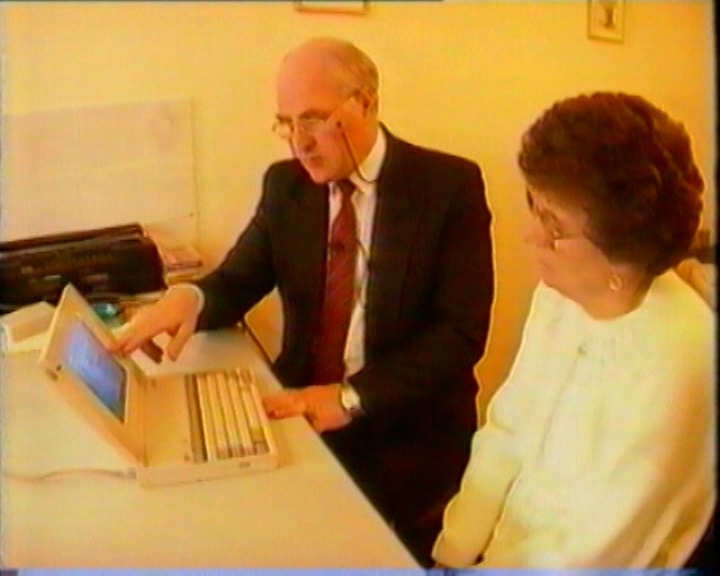
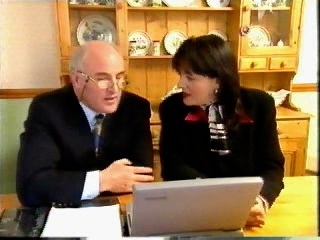
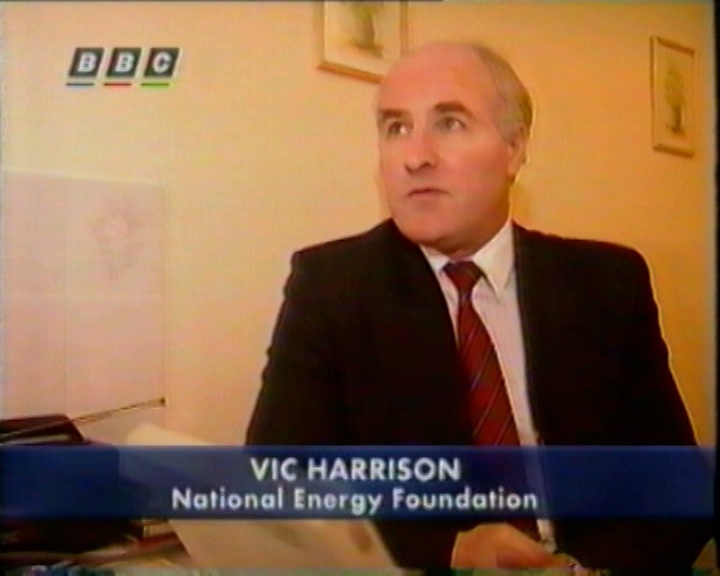
For ten years Vic travelled the country introducing builders, developers, councillors and even government ministers to the newly developed Standard Assessment Procedures (SAP) software. His integral role saw him featured on national television, radio and newspapers. “At one point, I was probably the most knowledgeable person in the whole country about this new way of building. It was an exciting time and I really enjoyed meeting so many people. It felt like you were doing a lot of good – promoting how to insulate homes and energy saving methods, it’s what I knew best.”
SAP was introduced in 1992 by the Building Research Establishment (BRE) as a framework to calculate the energy consumption of a dwelling, and in 1994 it was introduced into Building Regulations to assess this level of performance. Vic spent much of his time demonstrating SAP to building control officers as the regulations changed and became compulsory. “The NEF continued to improve SAP all the time, adding to it – in fact I think it changed every two years from then on. It’s even still changing today. And it was important to know and understand these changes at all times so we could pass on this expertise to those putting it into practise.”
At the same time, Alan was busy over at the Milton Keynes Energy Park – a £100m pioneering development of low energy homes in Milton Keynes, monitoring the energy consumption of large houses in the park itself and feeding the data through to the BRE who were using it to develop and validate their version of the Energy Cost Index known as BREDEM. “They could see value in developing and refining the Milton Keynes’ approach in certain ways to make it national. The BREDEM model actually became the basis of SAP 2001.”
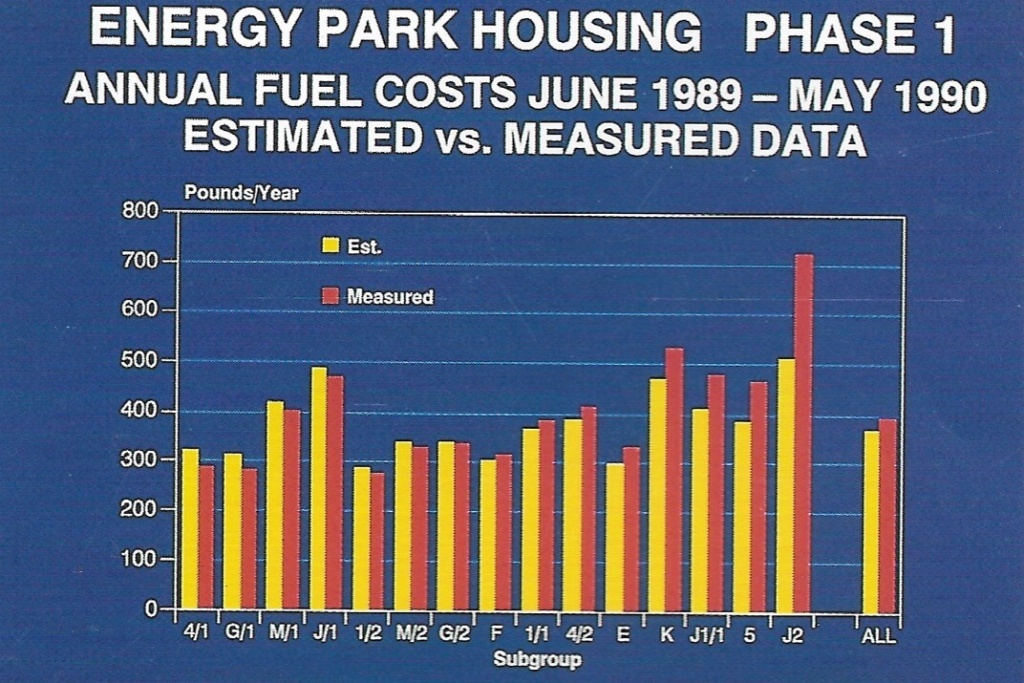
But Alan’s experience in this industry actually stretches back to the seventies when he first started working for the Open University Energy Research Group – a collaboration between the OU and the Milton Keynes Development Corporation. Alan says, “Those field trials on low energy housing preceded the Energy Park and were a leading light at the time. Working with its founder, Professor Jake Chapman and Steve Fuller of The Open University we were all completely inspired by the vision of what needed to be done following these successful trials. We realised if we were serious about this we needed to apply it much wider and take it to the next level. And Milton Keynes with all its development was the obvious choice.”
So it turns out that Milton Keynes has been at the central core of every twist and turn in the development of SAP, which eventually developed into Energy Performance Certificates (EPC) and of course RdSAP. Why? Alan says: “It all just came together there. The vision and forward thinking nature of some very good people who were happy to stick their necks out and look for interesting, adventurous projects and become early pioneers. Plus the opportunity and land which Milton Keynes provided. Milton Keynes was ahead of the game.”
When Vic left the NEF in the late nineties, the Government started to appoint training organisations – giving his new company, ECMK, a licence to be able to train surveyors. “You had to train to do RdSAP. I applied to the Government and because of my background I was lucky enough to be accepted. There were only five companies issued a licence to do the training. And we set about training 4-5,000 surveyors. I was automatically qualified! I still have my licence card for the NHER scheme. I was the third person to be given a licence. Professor Chapman was the first, his wife was the second. And I have number three on mine!”
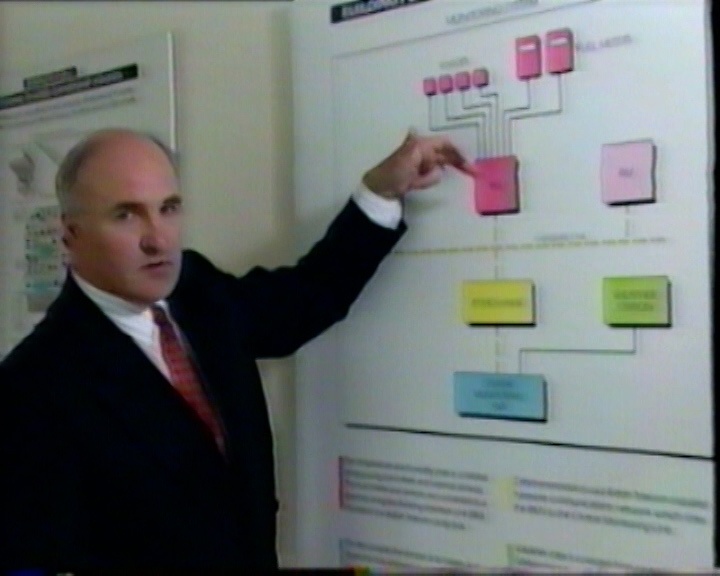

Vic’s interest in energy efficiency didn’t stop with him, in fact it became a family affair with his son Paul qualifying as a Domestic Energy Assessor in 2007 becoming ECMK’s head auditor also overseeing the work of hundreds of assessors.
This gave Alan and Vic another string to their bow, the experience of someone actually on the ground doing the surveys
In March 2009, Vic and Alan were joined by our now Chief Technical Officer, Mike Hartney, to provide support, software development and ever further understanding for Integrator’s clients. “The social housing sector cares a lot about this. The methodologies which they have to work with, depend on their outputs from SAP and RdSAP. So any changes made by the Government affect their requirements. There is definitely a dependency relationship here. It’s high on our priorities because it has very firmly been made an underpinning requirement of all housing associations to meet those minimum standards.
“While I genuinely care about carbon emissions, the methodology is also something you can get your teeth into. The assessment procedures are very logical and there are a lot of edge cases which need to be handled in a uniform way. That means there is a lot of lateral thinking in a system which is quite strict.”
Mike’s background also working for ECMK adds even further value to Integrator’s knowledge and expertise in the energy field: “There were a lot of assessors going out and we were supporting them. When it came to RdSAP there were a lot of complex situations, they needed to understand how the calculations worked, not just the survey process. And also the mechanical side as to how the scheme interacted with the government register.”
Whilst at ECMK, Mike worked with Alex Cale who in 2016 also followed Mike to Integrator bringing his expertise too, although he admits RdSAP was new to him when he first joined the industry. His role centered on supporting energy assessors and working with Paul, who was now one of the most qualified and experienced energy assessors in the UK and in 2018 would become Director of Surveying for Integrator. Alex says, “Paul would do the audits and check the assessors’ surveys. He would work on an excel system with inbuilt code. I would generate the random selections of EPCs lodged through the scheme and send out emails to the assessors alerting them to the necessary audits.”
But whilst Alex was doing this, new updates of RdSAP would be released by the government and he quickly became involved in the development and testing of updated software. “I understand the underlying information you need for calculations, and the data required, and what affects these ratings. I can support our clients.”
Mike says “Alex has a wonderful brain for development and methodologies. The way he analyses and looks at something – he offers a dual approach. He’s fastidious in programming but also understanding RdSAP. So it’s incredibly helpful.”
“What we do, allows our customers to easily incorporate RdSAP into their considerations and outputs. We use RdSAP as a backbone. We host, store and understand the importance of it. It’s not just a nice afterthought. Our systems have our understanding built into them.”

